ReadWriteThink
Read Write Think: Using Narrative for Expository Text
Lesson in which students read various narrative texts which provide a context for them to learn content-area topics. Narratives allow the students to begin to understand expository texts.
ReadWriteThink
Read Write Think: Using Science Texts to Teach the Organization of Nonfiction
Contains plans for three lessons that use science textbooks to teach about the organizational features of nonfiction such as labels, captions, headings, and fonts. In addition to objectives and standards, this instructional plan contains...
ReadWriteThink
Read Write Think: Guided Comprehension: Making Connections
Lesson introduces young scholars to the strategy of making connections. Students learn the three types of connections using a double-entry journal. A good resource for teachers.
ReadWriteThink
Read Write Think: Exploring How Section Headings Support Understanding
Teaching students to pay attention to headings and titles as they read? Here you'll find a practical application for using an expository text to apply the concept of using headings. Geared toward older elementary students, but lesson...
Curated OER
Mc Graw Hill: Part 2 Reading: Informational Text: Compare Text Structures
Compare the text structures in two nonfiction passages in this tutorial.
University of South Florida
Fcat Express: Compare & Contrast
Strategies to help students recognize similarities and differences provided by a standardized test preparation site intended for fourth grade. Includes strategies such as Character Frames, Character Mapping, Semantic Feature Analysis,...
Curated OER
Mc Graw Hill: Part 2 Reading: Comparison and Contrast Text Structure
A reference article showing reading strategies to understand text structure of comparison and contrast.
Education Development Center
Tv411: Summarizing Activity 2
This activity asks students to differentiate between main ideas and supporting details.
Other
Prezi: Main Idea and Supporting Details
Slideshow investigates how to find the main idea and key details of a story.
Read Works
Read Works: Vanishing Frogs
[Free Registration/Login Required] Students read about a skin fungus causing the harlequin frog species to become endangered. A question sheet is available to help students build skills in classifying and categorizing.
Read Works
Read Works: Winning the Vote
[Free Registration/Login Required] Students read about how Women won the right to vote. A question sheet is available to help students build skills in comparing and contrasting.
Read Works
Read Works: Starting Over
[Free Registration/Login Required] Students read about rebuilding after a disaster. A question sheet is available to help students build skills in comparing and contrasting.
Read Works
Read Works: Fourth Grade: Three Lesson Unit: Compare and Contrast
[Free Registration/Login Required] A three-lesson plan unit on comparing and contrasting through which young scholars compare and contrast two non-fiction articles and two editorials, and write a compare and contrast essay. With free...
Read Works
Read Works: Main Idea 4th Grade Unit
[Free Registration/Login Required] A two-lesson unit on main idea and details through which young scholars use the topic sentence to identify the main idea of a paragraph and categorize details as main idea or supporting. With free...
Education Development Center
Education Development Center: Tv411: Parts of a Newspaper
Students click through a lesson about the parts of a newspaper and answer questions about the types of articles found in each section, headlines, and captions that would go with photographs. Links to related videos are also provided.
Education Development Center
Tv411: Summarizing: Activity 3
In this activity, students choose the correct category to which details belong. Being able to categorize helps students to identify the difference between main ideas and details.
Better Lesson
Better Lesson: Introduction of Text Features
Dr. Murphy shares a comprehensive lesson plan to support students identifying various text features in informational texts. Students will mentally and physically engage in active learning to know how to navigate through different types...
Read Works
Read Works: The United States Constitution
[Free Registration/Login Required] Intended for early elementary students, ReadWorks provides a brief history of The United States Constitution. A question sheet is available to help students build skills in reading comprehension.
Curated OER
Glenco Online: Teaching Today: Reading Comprehension and Considerate Text
Learn the features of "considerate text" and ways to teach students to use these features to increase their comprehension as they read. These features generally apply to non-fiction, especially textbooks.
ReadWriteThink
Read Write Think: Text Features: Non Fiction [Pdf]
Compare the printed page to an electronic web page and use this activity to discuss the similarities and differences. A cross-curricular tie-in with ecosystems. Could easily be adapted to another subject area.
E Reading Worksheets
E Reading Worksheets: Nonfiction Passages and Functional Texts Worksheets
In this learning module, students will practice reading nonfiction passages. Students will also have the opportunity to answer multiple choice comprehension questions, answer short and extended response questions, and take a test. This...
Curated OER
Mc Graw Hill: Part 1 Reading: Literature: Summarize
Summarizing is a key skill needed in reading comprehension. This page describes how to summarize main ideas in a text. Click on Model button for a model with explanation and then click on Practice (Bottom Right)
Scholastic
Scholastic: Informational Text: Reading Response: Compare Contrast [Pdf]
This graphic organizer can be used as a response to informational texts. Students will write two topics from their informational text as a during or post-reading activity. Under each topic, students will list similarities and differences...
Scholastic
Scholastic: Informational Text: Reading Response: Compare Contrast [Pdf]
This graphic organizer can be use with students when they read an informational text. Using a Venn diagram to organize content, students will write important similarities and differences after reading an informational text and analyzing...







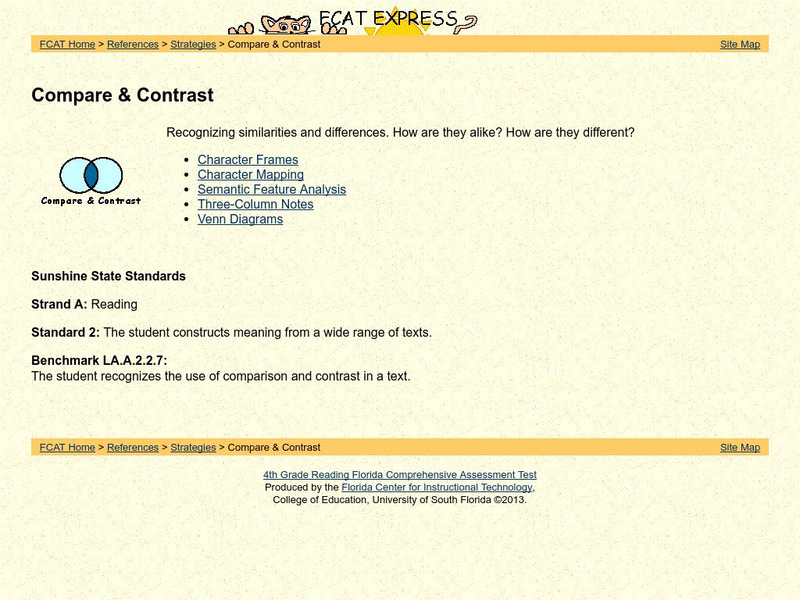

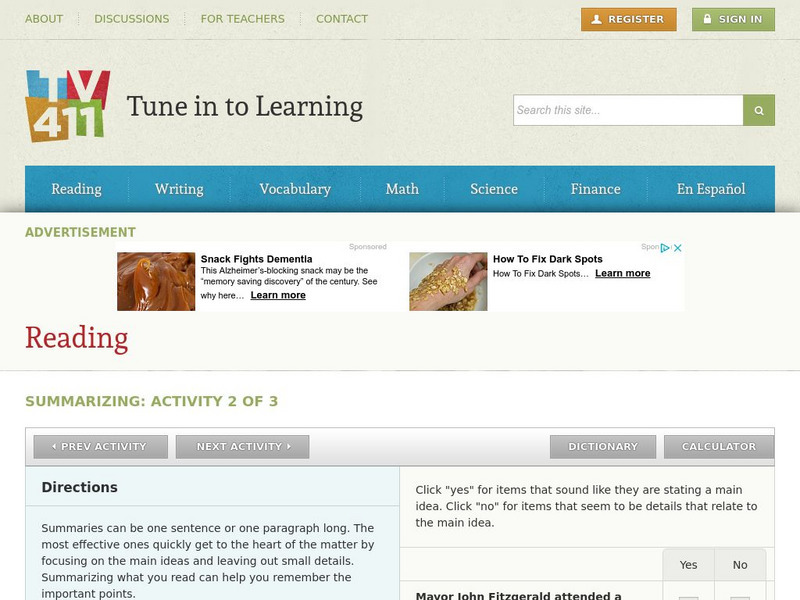
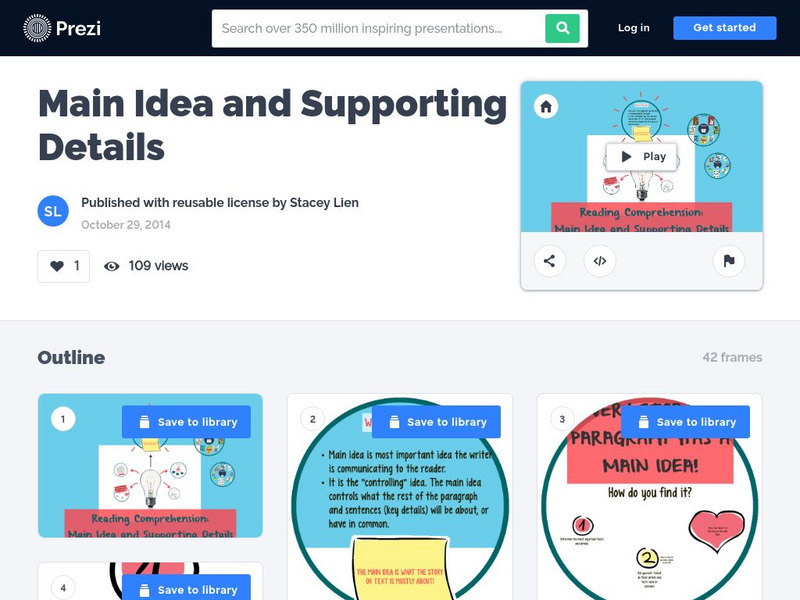
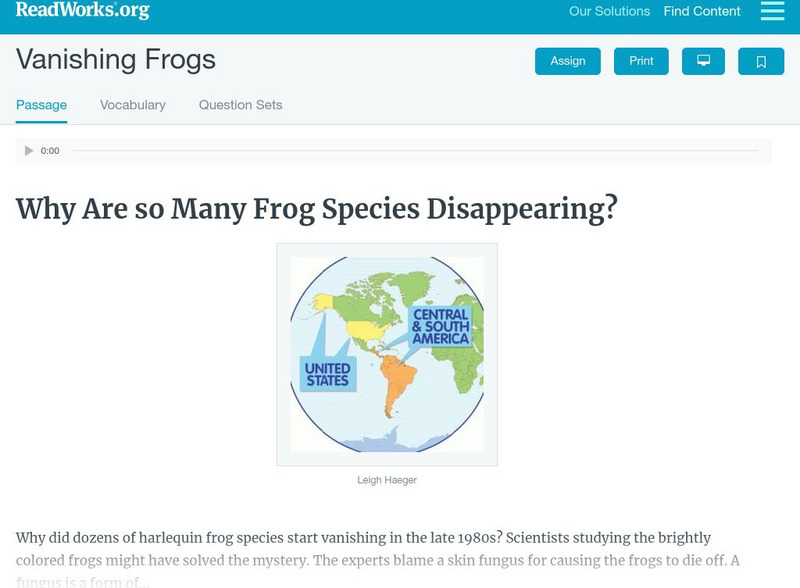
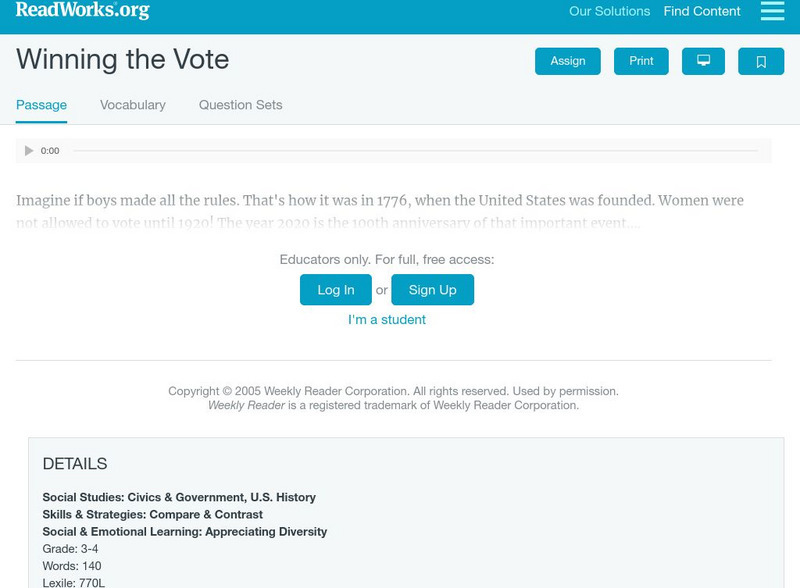





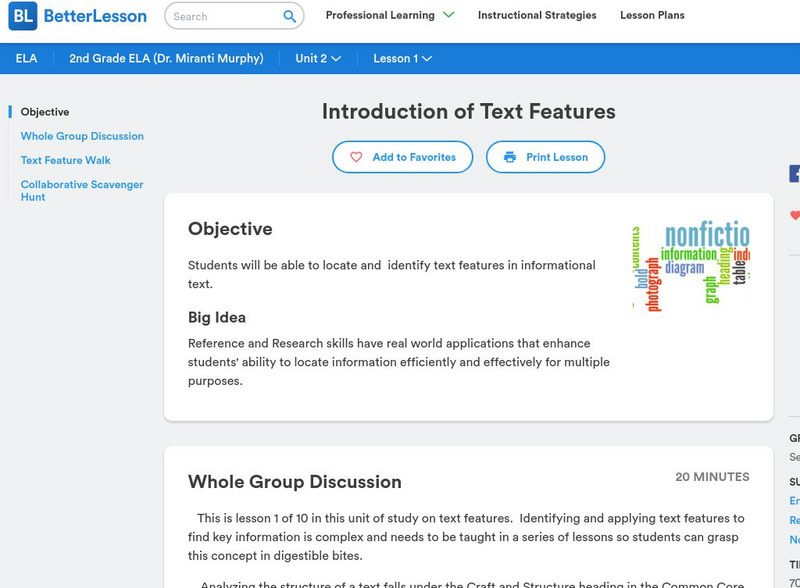
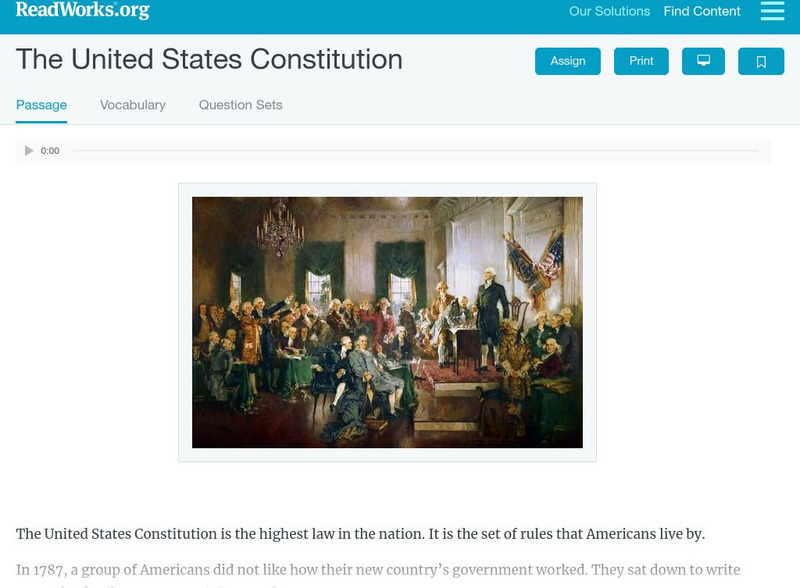
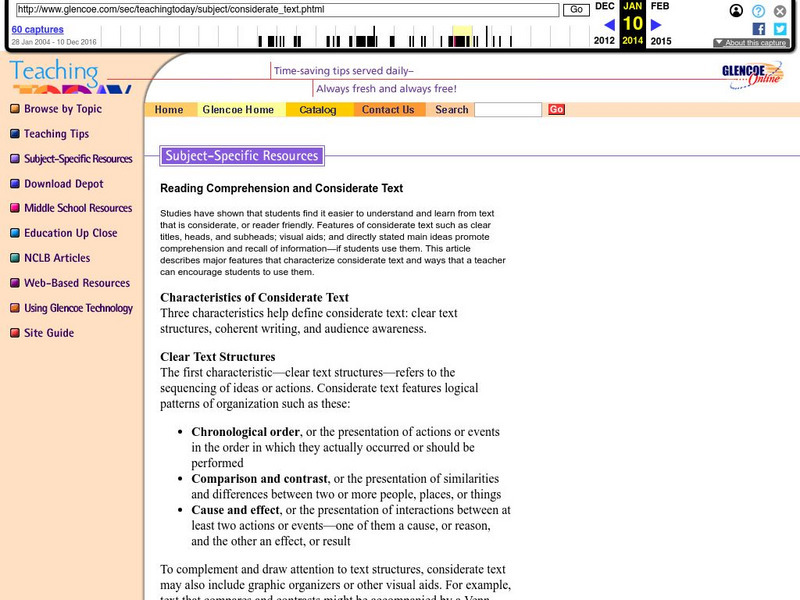
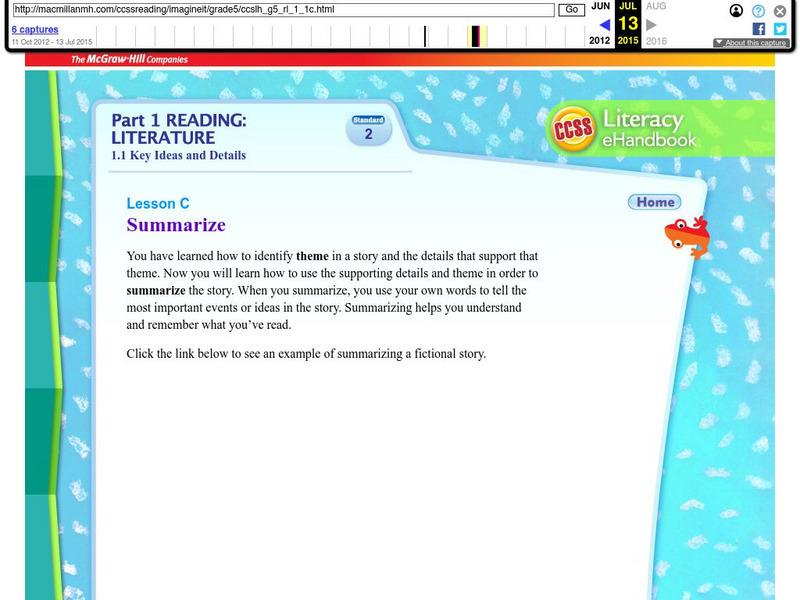
![Scholastic: Informational Text: Reading Response: Compare Contrast [Pdf] Graphic Scholastic: Informational Text: Reading Response: Compare Contrast [Pdf] Graphic](https://content.lessonplanet.com/knovation/original/266410-636b82f8d59c404dcf74be19672fc980.jpg?1661510821)
![Scholastic: Informational Text: Reading Response: Compare Contrast [Pdf] Graphic Scholastic: Informational Text: Reading Response: Compare Contrast [Pdf] Graphic](https://content.lessonplanet.com/knovation/original/266411-709e2a628c559574de71e4fd23831b4b.jpg?1661510822)